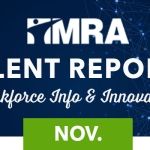While culture affects all aspects of the organization--employee engagement, retention, productivity, and more, making a shift in programs and practices will also have consequences on culture. To have the positive impact leaders want, a change initiative needs good planning, communication, and follow-through. Partner with MRA’s Organization Development team to understand employee perceptions, assess needs, and plan your organization’s strategies for growth.
-
Change Management
Change Management
Change comes in all sizes—from small changes in process to a large change in overall strategy.
Proactive Change
Change can have a profound impact on your workplace. When it is managed well, you achieve your objectives, your employees are engaged in making the change, and you’re able to maintain the change over time. Change management helps people transition to new procedures, new structures, and new ways of thinking.
Thoughtful, proactive change management enables:
- Better productivity
- Less resistance and conflict
- Increased employee morale and motivation
- More effective communication
- Greater collaboration and fewer divisions
- Less back sliding, fewer work-arounds
Our Approach
At MRA, we promote trust, active listening, and authentic communication, while incorporating best practices for leading and dealing with change. Our approach to change management includes:
- Clarifying senior leadership’s role
- Setting clear goals and objectives
- Helping teams build consensus
- Assisting leaders to recognize and deal with resistance
- Supporting agility and flexibility
- Applying strategies for communicating
- Creating and implementing effective action plans
Partner with MRA and build a foundation to positively respond to change.
-
Coaching Culture
Coaching Culture
When people describe a coaching culture, you’ll hear assumptions and values like a commitment to feedback, candor, and encouragement; an intent to develop employees and increase their engagement and accountability; and an expectation of continuous feedback and open communication. MRA’s variety of coaching services will help build your organization’s coaching culture.
-
Diversity, Equity, and Inclusion
Diversity, Equity, and Inclusion
To be successful, diversity, equity, and inclusion initiatives must be embedded in the culture of an organization and fully supported by leaders. This means top-down and bottom-up inclusive strategies from a diversity of perspectives that inspire innovative and creative thinking. Partner with MRA to make your DEI journey successful.
-
Employee Engagement
Employee Engagement
Employee engagement impacts the organization’s bottom line with productivity, innovation, customer service, and positive work climate. Fully engaged employees are a critical success factor and a major competitive advantage.
Engaging employees starts with an accurate picture of employee needs and continues with action plans that address employee perspectives and support healthy communication channels. MRA’s professionals will help you understand employee perceptions and take actions to strengthen engagement across the organization.
Partner with MRA for:
- Employee engagement surveys
- Stakeholder interviews
- Focus groups
- Executive and leadership coaching
- Training
-
Performance Management
Performance Management
A successful performance management system empowers you to attract, develop, and retain a high performing workforce.
Performance Reviews
What is the difference between a performance review and performance management? A review is a look back at activities, work, and accomplishments that have happened in the past. It’s feedback about things that are finished. At its best, a performance review summarizes accomplishments and challenges that have been addressed while the work was in progress. At its worst, it contains surprises about where your employee fell short of expectations.
Performance Management System
A successful performance management system is future-oriented. It helps employees and their managers communicate clearly and often about expectations, challenges, results, and changes needed to successfully reach work goals. At its best, performance management empowers you to attract, develop, and retain a high performing workforce. Developing a strategy in which all elements of your performance management system work together enhances its impact and the speed at which you can attain your business goals.
Components for Success
At MRA, we will work with you to create an effective performance management system that provides the framework for driving a high-performance culture. We’ll help you consider the components that are needed for success, including:
- Using your organization’s mission, vision, values and culture as a foundation
- Defining core competencies and leadership competencies
- Creating a culture of coaching and constructive, ongoing feedback
- Designing feedback tools and schedules that make sense and are useful to managers and employees
- Building individual development plans
- Identifying and developing high performers
- Aligning with compensation and succession plans
With MRA, you can make your performance management system a powerful tool to establish your sustainable competitive advantage. Contact MRA’s Organization Development professionals at 800.488.4845 or [email protected].
MRA helped to link our business and people priorities with our strategic initiatives. Whether performance management, workforce planning or talent development, MRA has the knowledge, experience and tools to integrate your efforts. Our MRA partners were knowledgeable, professional, positive and responsive.Jodi Chandler, Sr Vice PresidentFirst Business Financial Services -
Strategic Planning
Strategic Planning
Partner with us for strategic planning and rest assured that your company’s success is our primary goal. We work to understand your business and the key challenges you face, then help you put together a suitable, actionable, and practical plan. MRA's Strategic Planning helps you achieve your business goals and helps your organization:
- Foster an environment that welcomes and expects innovation and strategic sharing.
- Listen to everyone’s opinions and build consensus about the organization’s direction.
- Clearly define your purpose, and establish realistic goals and objectives.
- Identify constraints to business strategies.
- Ensure effective use of your resources by focusing on key priorities.
- Provide a base to measure progress, and establish a mechanism for informed change when needed.
- Encourage transparent communication of business direction, goals, and objectives to cultivate a collaborative team environment.
- Empower individuals to take initiative and ownership of actions that advance the plan.
When is Strategic Planning appropriate?
- To jump-start a new company
- To clarify vision, mission, and values
- To prepare for a new major venture, such as developing a new department, division, major new product, or line of products
- To lay groundwork for the next fiscal year
-
Succession Management
Succession Management
MRA’s comprehensive succession management services can satisfy both short- and long-term business needs. We’ll work with you to identify your critical positions and the competencies and criteria you need in them. We’ll design tools for your leaders to use to identify future leaders and high potential employees. Finally, we’ll help you with development planning for your potential successors. Our goal is to develop a process that sustains succession management into the future.
MRA's succession management provides:
- Continuity of leadership
- Sharpened and expedited ability to identify, develop, retain, and promote high potentials and diverse talent
- Enhanced achievement of business objectives through the selection and development of leaders on the basis of strategic and organizational requirements
- A common framework for performance standards and frequent in-depth reviews of key talent
- Results metrics
- A clearer understanding by employees about the organization’s leadership process, development of talent, and promotion of diversity
When a manufacturing organization with 1,500 employees and multiple locations learned that 22 percent of its management staff could retire by 2019, they asked MRA to help develop an action plan for managing succession.
-
Team Dynamics
Team Dynamics
To deliver consistent, high-quality results, successful teams need a clear purpose, solid structure and processes, compatible roles, and superior communication skills. Whether it’s a team of senior leaders, a department team, or a project team, members need to work to develop cohesiveness through trust and collaboration. MRA’s team coaches will partner with you to build team success.
Featured Training & Events
Organization Development (OD) Certificate
Related Articles
Meet Our Team

Amanda Mosteller

Amy Muench

Jane Giacobassi

Katie McCloskey

Keith Peterson

Kristie Haase












